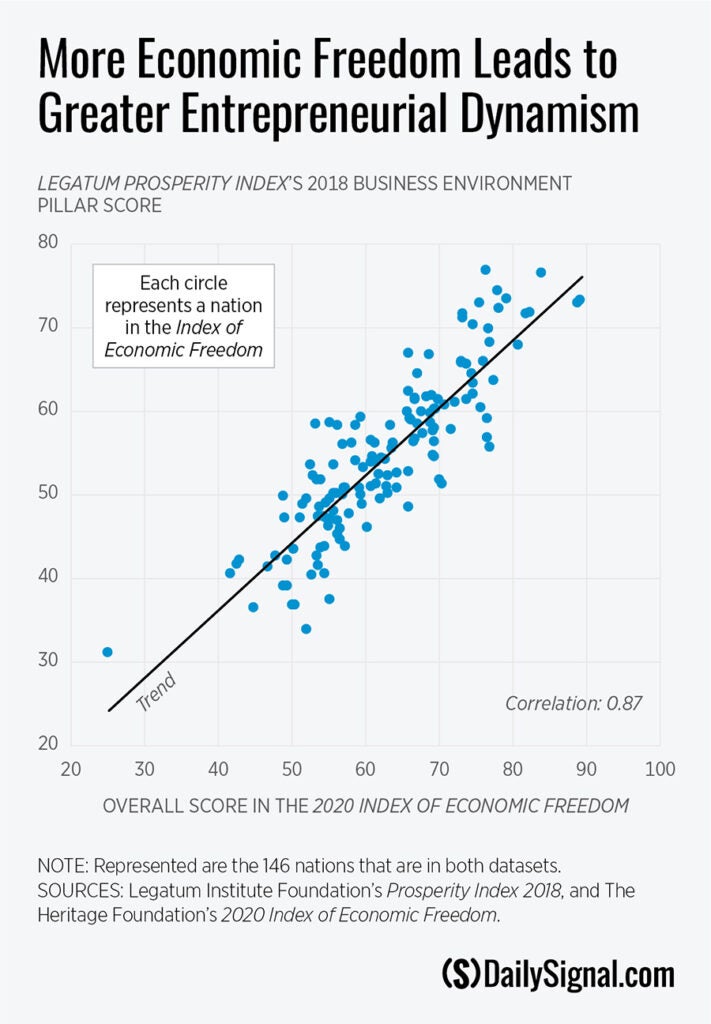The World Trade Organization Gets It Wrong: It Is Not the Government’s Job to Pick Innovators
Patrick Tyrrell / Anthony B. Kim /
The World Trade Organization has released a new report that offers recommendations to world governments on how to stimulate innovation in digital economies.
Regrettably, the policy recommendations are heavy on big government intervention and ignore a fundamental principal of free-market economics: that governments should first and foremost get out of the way of competitive entrepreneurial activity.
The report, titled “World Trade Report 2020: Government Policies to Promote Innovation in the Digital Age,” utterly fails to deliver on the hopeful promise of its title. Little justification is offered for government action outside of a few specific ideas related to the development or expansion of communications infrastructure.
While it was certainly not the goal of the report to cast doubt on the need for government action, one cannot help but be left with the impression that the promotion of innovation by government is by and large a waste of time and resources.
The report itself notes:
The economic history of the economies of the former Soviet Union, Latin America, Africa and even Asia have been marked by inefficient public investment and misguided government interventions that have resulted in many ‘white elephants’ and costly distortions.
Far better would be to “promote” the removal of trade barriers and confiscatory taxes, and pursue a universe where business innovators encounter no artificial friction in obtaining inputs they use to innovate and invent products for customers to buy.
The World Trade Organization report gets part of that right, albeit from a top-down, all-too-global perspective, saying:
The certainty and predictability in global market conditions fostered by the multilateral trading system have made an enormous contribution to innovation and technology diffusion globally, notably by underpinning the rise of global value chains.
The report also rightly values the government role of protecting intellectual property rights—intellectual property rights cause smart people to work hard to create inventions they know will not be raided.
Government’s role should not be about assigning specific desired innovations or picking the innovators to accomplish them. That’s a recipe for abject failure.
Rather, its critical task should be to create and advance a policy environment that is conducive to enhancing the overall capacity of the private sector, which is the real engine of innovation and value-creation.
As The Heritage Foundation’s annual Index of Economic Freedom has made clear over the past quarter-century, the powerful positive link between economic freedom and higher levels of innovation has measurably ensured greater capacity to cope with the wide range of often unanticipated challenges the world has confronted.
The regulatory power of the marketplace, generally ignored and certainly underappreciated by advocates of big government, pushes firms to identify ever more efficient means of production and respond to consumer demands. The end result is a virtuous cycle of investment, innovation (including in greener technologies), and dynamic economic growth.

Industrial policies, no matter how well intended, almost always reward established companies and promote known products and processes. That’s the opposite of innovation. By contrast, an economic environment rooted in economic freedom allows individuals and firms the space they need to imagine and try out new processes and products.
That’s how you get the dynamism required for real change.
